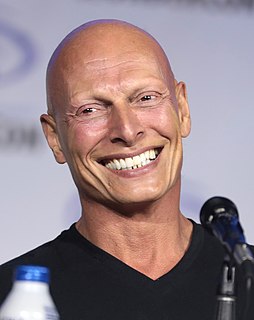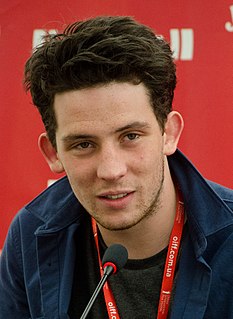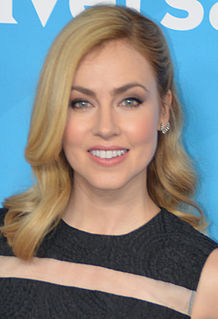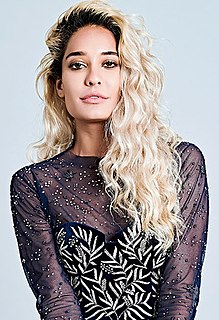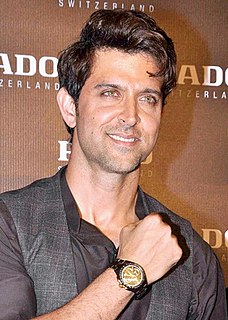A Quote by Anthony Russo
I think that's part of the fun for us: we love looking at movies through the filter of a specific character - characters who aren't the lead - and figuring out the film from their point of view.
Related Quotes
My favorite part about working in theater is the rehearsal process. I absolutely love the rehearsal process. Working out the characters, figuring the character out, and the relationships between the different characters. I love all of that, which, unfortunately in film, you get very little opportunity to have.
Acting is fascinating to me. I love unlocking the mysteries with characters and finding out what would be the most intriguing aspect of that character to exist in. Figuring out a person and getting to be a different person every day, hey - that's pretty lucky. I don't have to wake up and be Amanda if I don't feel like it. You know, that's fun.
Everybody you work with sees what you're doing from a different point of view, a very specific point of view. So, if someone is lighting, they're seeing it from that point of view. A production designer is seeing it from the placement of furniture that tells you about the character. Everything that goes into the room should tell you about the person who lives in that room.
I think at some level, it's just alchemy that we, as writers, can't explain when we write the characters. I don't set out to create the characters - they're not, to me, collections of quirks that I can put together. I discover the characters, instead. I usually go through a standard set of interview questions with the character in the beginning and ask the vital stuff: What's important to you? What do you love? Hate? Fear? .. and then I know where to start. But the characters just grow on their own, at a certain point. And start surprising me.
I find myself speaking through the other characters, putting ideas in their voices and heads. Writing almost becomes a splitting of myself into multiple personalities. But I don't write to make an argument on behalf of any of the characters, or to prove anything about a character. I think that's important that I be serving the story first and not my own point of view.
When you are writing, you have to love all your characters. If you're writing something from a minor character's point of view, you really need to stop and say the purpose of this character isn't to be somebody's sidekick or to come in and put the horse in the stable. The purpose of this character is you're getting a little window into that character's life and that character's day. You have to write them as if they're not a minor character, because they do have their own things going on.
You've got all these characters and yet, you're hovering over one character like a fly over a stinky diaper. Realize that you've got a kickass superpower: you can possess and take-over anybody inside the story. With the power of Point-of-View, you can drag us along for the ride. You can shove us into their eyes, their minds, you can force us to piggyback on their experiences past and present. Sometimes untangling a knotted-up tale means looking at it from different eyes: what better eyes than those of the other characters inside the story?
Well,the fun part of being a writer is that it's like making a wonderful film, with no limit on my budget. I can design the sets, the costume, the lightings, I write the script, and then I get to perform all the roles as I step into each character's skin, zip up, and adopt that point of view. So, to me, they are all compelling and fascinating.


